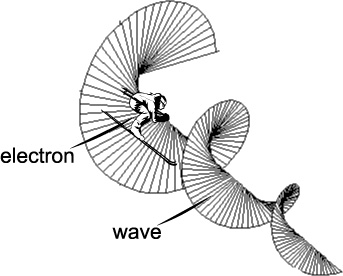In low-pressure plasmas the
electron mean free path can be larger or comparable to the plasma characteristic
inhomogeneity scale. Therefore, the
electron transport is collisionless and nonlocal, since an electron can traverse
a significant distance between collisions and sample different values of
electric field along its way. As a
result, the electron current is determined not by the local electric field, but
by the entire profile of the electric field. Also for inhomogeneous electric fields another mechanism of
heating or power dissipation is possible, which is strikingly different from
collisional one; namely collisionless heating is determined by the wave-particle
resonances and independent of the
collision frequency. Moreover, the electrons are frequently not in equilibrium
with themselves, and as a result, the electron energy distribution functions in
such plasmas are typically non-Maxwellian. This property makes plasmas a
remarkable tool for plasma applications, including plasma processing, lighting,
plasma sources, etc.
A very productive
workshop "Electron kinetics and Applications of Glow Discharges" was held in
1997 in St. Petersburg. That workshop discussed the plasma self-organization in
gas discharges and resulted in a broad dissemination of existing developments in
theory, diagnostics and modeling of non-equilibrium electron kinetics in glow
discharges. The proposed workshop at PPPL during the Summer of 2005 will update
and summarize progress since 1997 and will discuss future directions in the
field.
Another
important goal of the workshop is to bridge high- and low-temperature plasma
communities. Both communities have
developed many useful tools little
known outside their own communities. The proposed duration of the workshop is
2-3 days in August 2005, and the estimated number of participants 30.
Some specific topics within the scope of this
workshop are:
- kinetic theory of nonlocal electron
transport
- numerical methods for kinetic plasma modeling
- plasma diagnostics of
low-pressure gas discharges
- applications which utilizes nonlocal electron
transport
- databases for electron-atom collisions
- wave-electron resonant interactions
